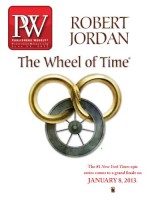A “battle philosophy” is what agent-turned-entrepreneur Joe Regal said drove him to launch Zola Books, the new e-book retailer he, along with a handful of authors and tech industry veterans, recently unveiled. Regal is the first to admit that he never saw himself running a startup, much less becoming an online bookseller. That was until he realized he could no longer support his authors as an agent because, in his mind, the retailing equation became broken. Zola is, more than anything else, his attempt to fix that equation. To that end, it’s the anti-Amazon.
The Web site (Zolabooks.com), currently in beta—demos were being offered on the floor of BEA last week—is expected to launch in the fall. (The holdup is tied to the DoJ settlement, since contracts with the publishers involved in the suit cannot be finalized until the court rules in the case.) Zola will retail only e-books, and has contracts in place to sell all digital titles from the big six, the major independents, and some distributors. (A contract with IPG has been signed and a rep from Zola said “the smaller distributors are a goal.”) Zola has elements of everything from Goodreads to Bookish to Byliner, but at its core it’s a retailer with a strong social component.
Zola’s interface, Regal said, is designed to make book-buying a more pleasant and cleaner experience than it is on Amazon. (The main consumer complaint often leveled against Amazon is that it’s excellent for getting the book you want, but lousy at pointing you to the next book you will like.) Zola’s book pages focus on the author—on every buy page the author’s photo and bio will be prominently featured, along with professional reviews—and content is only editorially-driven. (There is no coop, and no customer reviews.)
Zola will make its money off of e-book sales, with the company taking, on average, 30% of net. Indie bookstores, which the site is aggressively courting, will also get a cut. Hoping to serve as the online retail partner to smaller booksellers, Zola is offering bricks and mortar players 60% of all net sales from customers they send to the site.
“Amazon believes price wins,” Regal said. “But no one can survive at $2.99. Our idea isn’t that that’s bad—even though I do believe that.” Elaborating, Regal said Zola is looking to differentiate itself by offering a community—a place to interact with authors, publishers, friends, and readers at large; to offer a microcosm of the independent bookstore experience online.
Beyond indie booksellers, who it’s hoped will build branded storefronts on the site, Zola is trying to attract everyone in the industry from publishers, to bloggers to authors. Authors, for example, can track their sales (and royalties) on their own personalized dashboard. Publishers have a more elaborate dashboard, with the ability to see BookScan-like data on everything varying from where (geographically) their sales are happening, to the number of new followers accrued.
The community element of the site—consumers who sign up can opt to connect to their Facebook or Twitter accounts—is enhanced by the Zola Social Reader. Zola’s e-books are platform agnostic (meaning they can be downloaded on all major devices, including Kindle) and can be read off the site, but readers can also opt for a more interactive experience. Through the social reader, which can be personalized for high levels of interactivity or no interactivity at all, consumers can share notes on titles as well as see the progress their friends are making in the same book. The site also has numerous other bells and whistles—among them a direct e-mail platform that allows users (be they booksellers or authors or publishers) to send blast e-newsletters to their followers.
When asked how the site might overcome the difficult barrier of brand recognition—i.e. getting consumers to go somewhere to buy a book they’ve not heard of—Regal said the site will launch with an ad campaign. But, more significantly, he believes there is room to entice readers with more than just rock-bottom pricing.
Regal is not alone. A number of authors have invested in Zola. One writer who put her money where her mouth is, is Audrey Niffenegger. The e-book edition of her bestseller The Time Traveler’s Wife will be available exclusively at Zola when the site launches. (Regal was her agent, and she held on to her e-book rights.) For Niffenegger, the investment is a way to level the playing field; she, like Regal, thinks various key players—authors, booksellers and publishers—get squeezed by Amazon’s pricing model. Josh Bazelle, another author-investor, was also drawn to a model that he believes is more equitable. “No one has nailed the retail equation,” Bazelle, whose books include Beat the Reaper, said. “I know of no other example where a company set out to be a major bookseller... and be fair.”



 Volume 259
Issue 24
06/11/2012
Volume 259
Issue 24
06/11/2012





